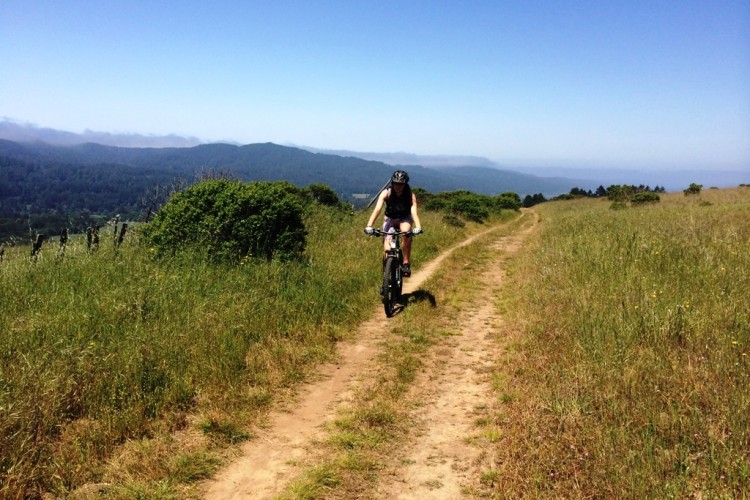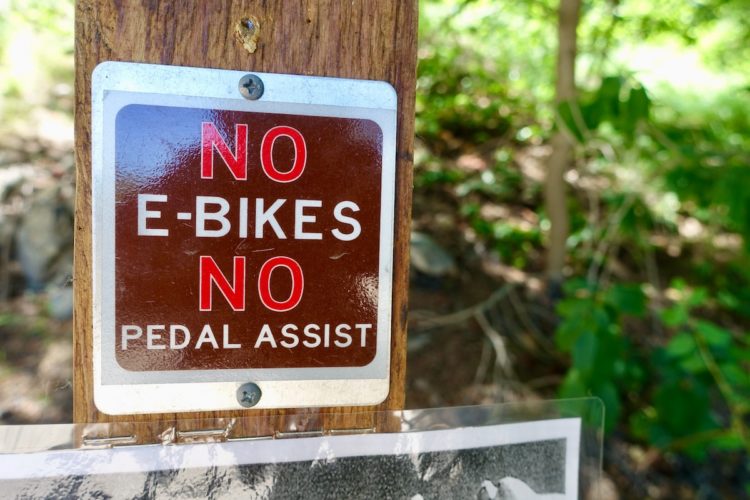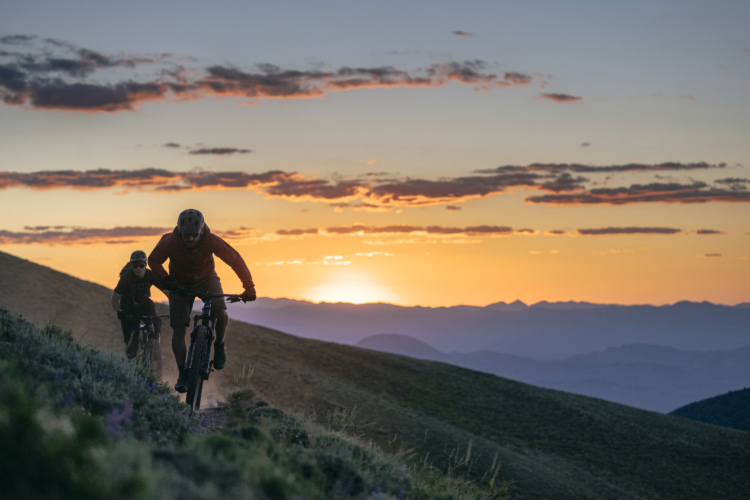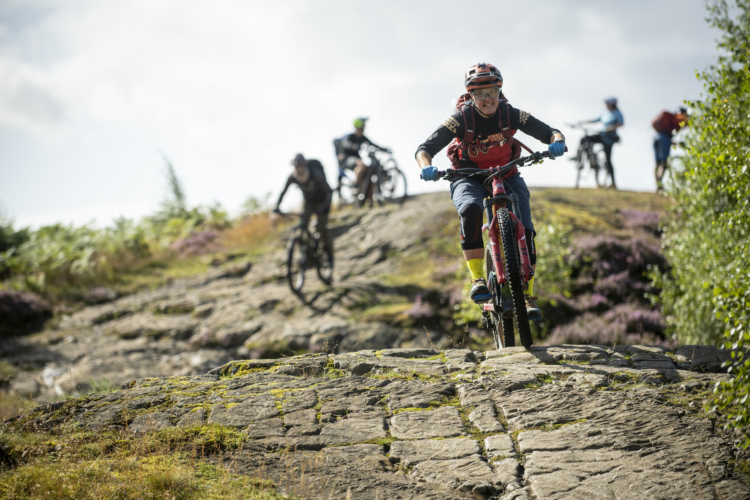
In today’s episode, Jeff, Greg, and Aaron discuss the issue of e-bikes on mountain bike trails. We cover a recent study by IMBA and new regulations out of California and also talk about why so many mountain bikers are opposed to electric mountain bikes and where, if anywhere, they might be appropriate.











6 Comments
Oct 23, 2015
As alluded to in the comments the interview would have been more interesting, at least in my opinion, if there was an advocate in favour of the eMTB, someone who owns one and has had reasonable experience using it and who is able to articulate an opposing view in a reasoned and balanced way. However it is good that an attempt is made to generate the conversation of a rapidly emerging trend confronting the recreation of mountain biking.
Stories centred on electric mountain bikes don't have much trouble provoking the anticipated response in the comments section, which I daresay would have been exactly the case in another age when snowboards first made an appearance on the worlds ski slopes. Now they're in the Olympic games.
I live in New Zealand and as you and much of your readership will be aware it is a mountain biker’s paradise. The e-mountainbike (eMTB) is emerging slowly in this country. I have been an early adopter after being forced to hang up my Giant hardtail many years ago due to a chronic knee problem. I have been concious of the controversy this new modality will generate as popularity grows and for that reason I have been very observant of my own impact on the environment and at the same time trying to gauge the trends in other countries.
Where North America, (USA and Canada) are distinguished in this issue is the relative dearth of regulation in the classification of e-bikes. The EU would probably be the most regulated jurisdiction and that is where most of the dedicated eMTBs are being sourced from. It is tied in with what is known as the European directive EN15194, which is the specification of the pedelec. So the power will always be limited to 250 watts and they have to be propelled primarily by human muscular energy. EN15194 has been adopted by the UK and Australia and for New Zealand we're almost there but have a marginally higher power cut off at 300 watts which is historical dating back to when the rule was established.
I have tried to place all the objections into either one of three categories; Social, Physical or Ecological.They are many and varied and it is beyond the scope of this comment to list them all, however suffice to say it is my opinion that none of them can be justified for physical or ecological reasons and I put that down to two elements of the Pedelec eMTB's characteristics, weight and power. The weight factor is irrelevant. There is no difference from an 84kg rider on a 14kg mountain bike to a 74kg rider on a 23kg eMTB.
The power being limited to assistance only is 250 Watts continuous rating. Most mountain bikers will output between 200 and 300 watts over a sustained period.In a nutshell the forces through the contact patch of the rear tyre are going to be equivalent. They are both going to leave the same footprint on the forest floor.
So that leaves the category of social impact. That is where the most vocal objection is squarely placed, that of a threat to future trail access.It is however a perceived threat and in your country, because it is akin to the wild west when it comes to e-mountain bikes,then you do have real concerns and the threat is likely to eventuate if it remains open slather to eMTBs on your trails.The answer of course is two fold. Adopt EN15194 into your rules and embark on campaigns to educate and inform all the stakeholders involved.
In our country the government has embarked on a massive infrastructure project to build a nationwide network of off road back country trails to give us an edge in the future boom of cycle tourism. They traverse a wide variety of countryside and much of it is single track in wilderness areas.The negative consequences to tourism of prohibiting eMTbs on these tracks would be significant given that a third of the population in our country and our major tourism partners will be over 55 in about 2020. However that has not dampened the enthusiasm of the naysayers, most of whom have never ridden a pedelec eMTB and are probably simply reiterating what they read on blogs throughout the English speaking world and most of it from the USA.
Layered over all I what I have mentioned above is the issue of the law and land management. All of our public open spaces are managed by either a central or local territorial authority. There are a couple of Principal legislative Acts that govern how the land is to be administered and like a lot of law it's constantly being challenged to keep up with technological advances.The emergence of e-bikes is no exception.
Currently, as is the practice in your country, land managers are content to simply place e-bikes into the category of motorized vehicles. But therin lies the problem. Their prinicipal Acts do not interpret a motor vehicle and the definition has to be borrowed from other legislation. Power assisted bikes or pedelecs are classified as not being a motorized vehicle in our law. They are expressly worded as being equivalent to a cycle. The land manager’s principal Acts give them the option to decline the interpretation because it's not intended or inconsistent with conservation prinicipals for the type of land they manage, but they have to justify the reason for doing so. A social objection such as a threat to future access quite simily does not hold sway. That is squarely the State’s problem and not that of the pedelec e-bike or the person who rides it. So where you have a designated cycle track on public land then unless there are physical or ecological reasons to support prohibition, you can't ban them. And that is how it should be. You cannot in any civilized society have the State making arbitrary rules.
E-bikes are here to stay and with the burgeoning demographic facing all of our societies there is going to be uptake because these bikes are getting so good. Take for example the Specialized Levo today. In three years time this bike will be 4kg lighter will go twice the distance on the same charge, and will handle equally well to any all mountain steed you have ever thrown your legs across.Three years after that you won't be able to see where the electrics are placed.It's hard to see them now.
So the way forward is to first and foremost understand the technology. Understand the design parameters and the legislation surrounding it. Convince yourselves they are not a threat and abandon the self flagelatting luddite attitudes trying to build a barrier to progress. That approach simply will fail leaving a lot of grumpy old mountain bikers in it's midst. We are all going to sucumb to lower limb degeneration at some point. Some sooner than others. Swallow some pride and revel in the fact that the camaraderie with your riding buddies will endure well past todays cutoff point.
Feb 19, 2018
I’ve rode older mtn bikes , rode bikes dirt bike and owned horses..and now at 64 and with cardio vascular disease am able to ride some single track be it outlawed by you liberal fucks,who can’t mind your own biz.if i prefer to ride a fifty pound bicycle so be it,I have trail smarts and know right from wrong..so leave me be and maybe work on your attitude about others..will continue to ride When and where I can,so next time I pass a mtn biker and say “ nice day “ he’ll respond with the same. Nuff said
MB
Oct 26, 2015
Oct 19, 2015
Oct 19, 2015
http://www.singletracks.com/blog/uncategorized/opinion-electric-mountain-bikes-belong-on-mtb-trails/
Oct 19, 2015
And this would have been more interesting podcast had there been one ebike advocate.